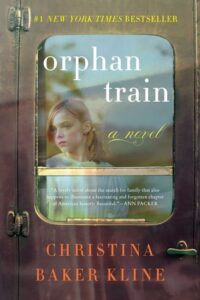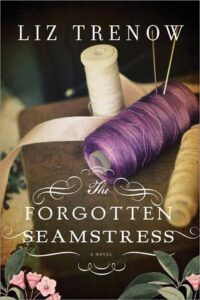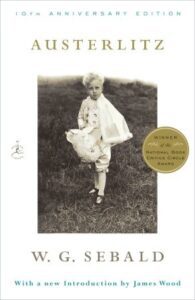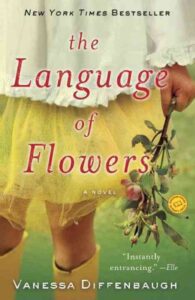Title: Orphan Train
Author: Christina Baker Kline
Page Count: 278 pages
Genre: Historical Fiction
Tone: Thoughtful, Poignant, Sobering
Summary from publisher:
Penobscot Indian Molly Ayer is close to “aging out” out of the foster care system. A community service position helping an elderly woman clean out her home is the only thing keeping Molly out of juvie and worse…
As she helps Vivian sort through her possessions and memories, Molly learns that she and Vivian aren’t as different as they seem to be. A young Irish immigrant orphaned in New York City, Vivian was put on a train to the Midwest with hundreds of other children whose destinies would be determined by luck and chance.
Molly discovers that she has the power to help Vivian find answers to mysteries that have haunted her for her entire life – answers that will ultimately free them both.
Rich in detail and epic in scope, Orphan Train by Christina Baker Kline is a powerful novel of upheaval and resilience, of unexpected friendship, and of the secrets we carry that keep us from finding out who we are.
SPOILER WARNING:
These book discussion questions are highly detailed and will ruin plot points if you have not read the book.
Questions composed by MPPL Staff
The Library is happy to share these original questions for your use. If reproducing, please credit with the following statement: 2015 Mount Prospect Public Library. All rights reserved. Used with Permission.
1. Were the orphan trains a good thing? Why or why not? What, if any, better options were available at the time?
2. What did you notice about the style of writing and how this story was put together?
3. Thinking back on the children that were highlighted in the book, Carmine, Dutchy and Niamh, what were the motivations of the families who took in these orphans? How did these differing motivations affect the children’s lives?
4. What similarities or differences are there between the past as shown in the story and our present foster care system?
5. In what ways are Molly and Vivian similar? How are they different?
6. Do you have things that you don’t use or are stored away but you can’t part with? What are those things and why do you keep them?
7. What would a timeline of Vivian’s life look like? Use a white board to diagram this or just do it verbally. What characterizes each segment of her life?
8. What would a timeline of Molly’s life look like? What characterizes each segment of her life?
9. “You can’t find peace till you find all the pieces.” How is this true in Vivian’s life? How is it true in Molly’s life?
10. Molly’s charms on her necklace are mentioned throughout the story. What is their significance? What did Vivian’s Claddagh cross and Molly’s charms mean to them?
11. How has Molly changed Vivian’s life? How has Vivian changed Molly’s life?
12. Read the prologue aloud to the group. Having read the book and rereading the prologue what does this tell you about Vivian’s view of the people in her past? What does this show about her character?
13. How did you feel about the way the author ended the story? Is Vivian’s happy ending enough?
14. If you were to write additional chapters to the book what would happen to Vivian, to Molly?
15. The American Experience, a PBS show, has a program on the orphan trains. There was also a movie made in 1979 called The Orphan Train. Do you think this book will come to the big screen? Would you want to see it?
Other Resources
- LitLovers Discussion Questions
- Video interview with Christina Baker Kline
- History of orphan trains from The Children’s Aid Society
- Huffington Post interview with Christina Baker Kline
If you liked The Orphan Train, try...
- The Forgotten Seamstress by Liz Trenow
- Austerlitz by W.G. Sebald
- The Language of Flowers by Vanessa Diffenbaugh
Save





